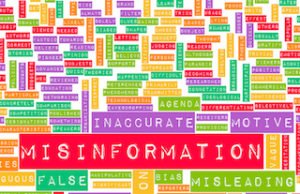Financial rogues continue to plague the elderly, the financially naïve, and the gullible. What else is new? But ThinkAdvisor’s latest survey of America’s worst advisors suggest we may have reached a new low in which preying upon the elderly, veterans, and even church members is, well, just another scam in the news.
In reading this article, two thoughts come to mind. First, it’s too easy to become deaf to the media drumbeat of financial skullduggery. What’s another $1 million or $10 million or $100 million in Ponzi schemes when the total amount of money invested in securities or annuities is a huge multiple of that? Second, it’s common to admit that these crimes happen to people in other towns and cities, but not to those we know in our own communities. Feeling immune, we then become more complacent when a local scammer scurries out of the sewer.
In short, we’re suggesting that every time such an article appears, advisors should ponder what they can learn in order to protect their customers, themselves, and their industry from financial predators. Here are six such lessons. Your list will no doubt vary.
1. Crime doesn’t pay. You know that, of course. The problem is, new entrants to the industry or veterans who feel stymied may think otherwise. So what should you do? Set a good example—an ethical example—for your colleagues and competitors to follow. When in doubt, raise the integrity bar as high as you can and keep it there to the best of your ability.
2. Regulatory enforcement is reactive. Financial rogues are adept at navigating the dark crevices between regulatory structures. They know how to slither to neighboring states when their domicile authority kicks them out. And they know how to play the FINRA arbitration system for all it’s worth, getting their BrokerCheck records expunged of black marks so they can live on to prey another day. As a result, ethical advisors must keep their eyes and ears open and inform authorities when they suspect wrongdoing. Then they must be ready to prod regulators to take action so that scammers don’t become the next Bernie Madoff, who thrived for years after Harry Markopolisinitially blew his whistle.
3. Regulators need resources to do their jobs. Yes, it’s popular to be anti-regulator… to question their authority, block new measures, and view them as parasites draining your income statement. But think of it this way: setting rat traps in your basement is annoying, but if you do nothing, the rats will eat your cheese.
4. Rogue round-ups show how little consumers know about finance. They are so easily misled and blinded by cognitive biases. So the lesson for “good-guy” advisors is this: Always be thinking about how to protect those who have entrusted their financial futures to you. Which means placing greater emphasis on financial education, especially on scam prevention, than you have in the past. Collect resources on the topic; write blog articles; discuss common scams at your client appreciation dinners. In other words, stretch the meaning of the term “asset preservation” to include fraud avoidance.
5. Scammers often come with smiling, familiar faces. They’re advisors who work in their victims’ community, who go to their church, who share an affinity with them. They’re easy to know and like and trust. And that’s what gets consumers in trouble, especially older clients with cognitive impairments.
6. Our sixth and final lesson: Financial rogues make it harder for ethical advisors to succeed. Each time they get caught and make the news, they create a blot on the industry’s reputation, as well as on the reputation of every advisor working today. So please, take these stories personally. Rogues aren’t just victimizing consumers. They’re hurting you because they impede sales and increase your costs for errors-and-omissions insurance. If that doesn’t make you angry, will anything?
• See also: 3 research-based techniques for resisting unethical conduct
Harry J. Lew is Chief Content Officer for the National Ethics Association. For more information on affordable errors and omissions insurance for low-risk financial advisors, visit E&OforLess.com. For information on ethical sales practices, please visit the National Ethics Association’s Ethics Center.













